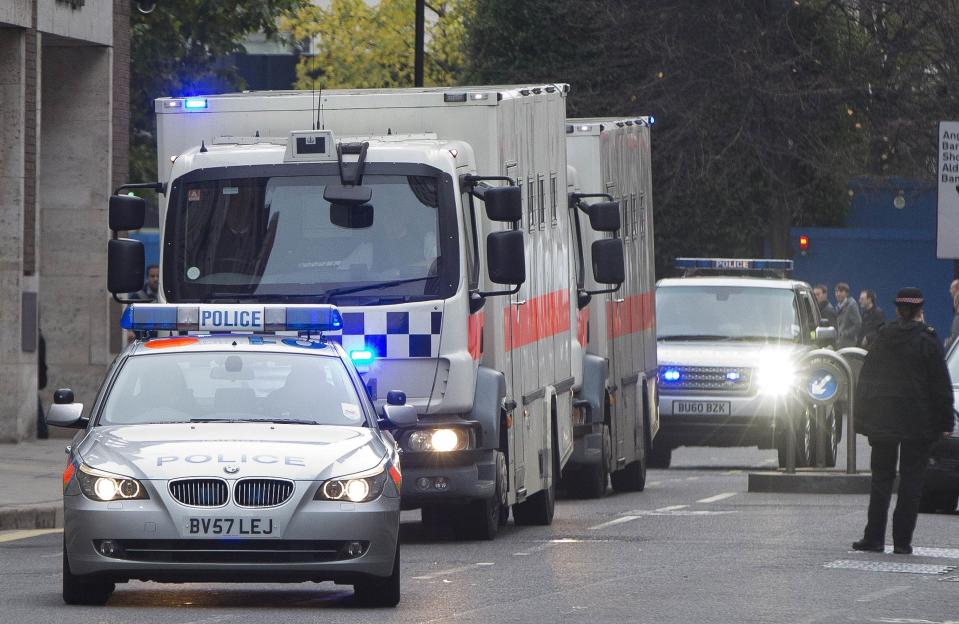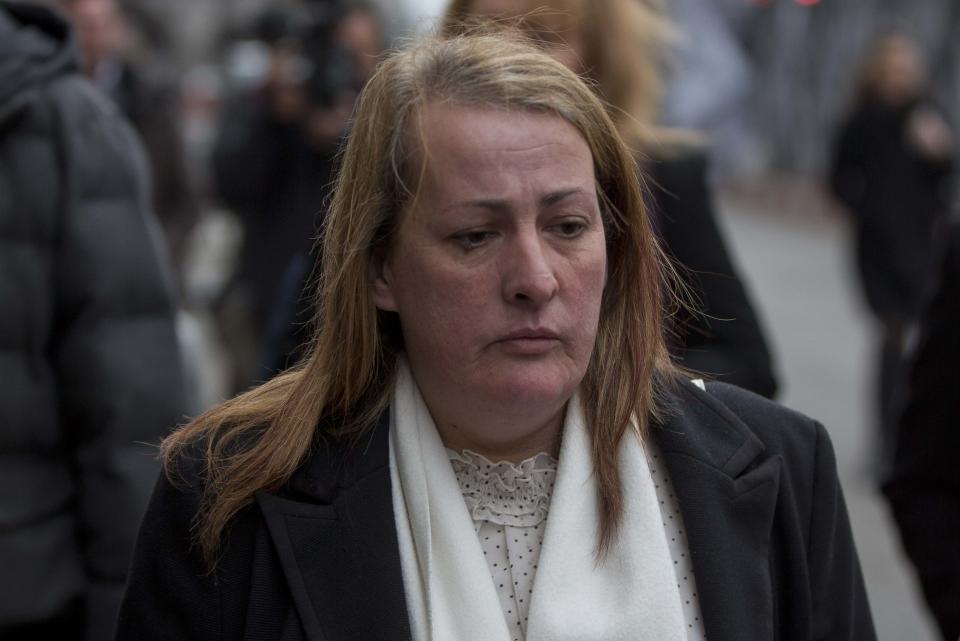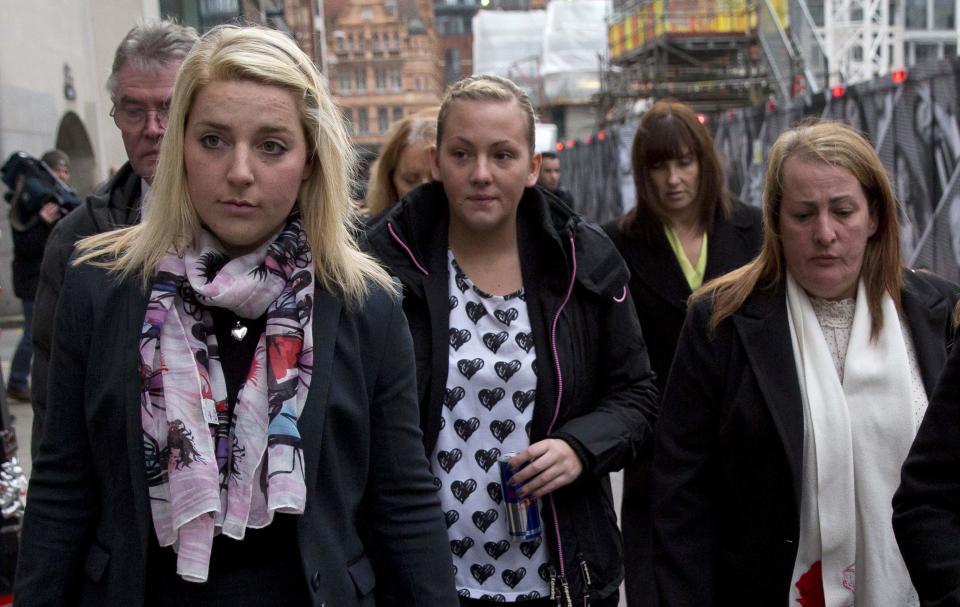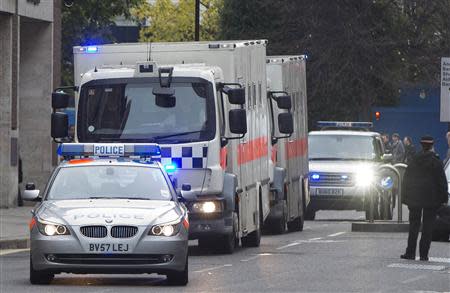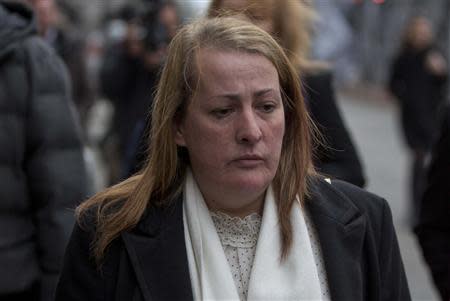Two men almost decapitated British soldier on London road, court hears
LONDON (Reuters) - Two men who killed a British soldier in broad daylight on a London street in a "cowardly and callous murder" tried to behead their victim after they had deliberately run him over, a court was told on Friday. Michael Adebolajo, 28, and Michael Adebowale, 22, knocked down Lee Rigby, 25, as he crossed a street in Woolwich in southeast London on the afternoon of May 22 before setting upon his unconscious body with a meat cleaver and knives. "He was repeatedly stabbed and it appears it was Michael Adebolajo who made a serious and almost successful attempt to decapitate Lee Rigby with multiple blows to his neck made with the meat cleaver," prosecutor Richard Whittam told London's Old Bailey criminal court at the start of the men's trial. He said the car had been travelling at 30-40 mph when Rigby was struck. "They had committed a cowardly and callous murder by deliberately attacking an unarmed man in civilian clothes from behind using a vehicle as a weapon," he added. The pair wanted the killing to be as public as possible and dragged Rigby's body into the middle of the road, the court heard. The jury of eight women and four men were told of the bravery of passers-by including one woman who stroked Rigby's lifeless body and another who talked to Adebolajo, despite his holding the cleaver and with his hands covered in blood. The two men then tried to attack police who arrived on the scene, with Adebolajo charging at them wielding the cleaver and Adebowale aiming a revolver at officers. It later turned out to be unloaded. Police shot the two men as Adebolajo got very close to their vehicle, with the whole incident taking place with the public standing nearby and within yards of a junior school, Whittam said. The pair, who the court also heard used the Muslim names Mujahid Abu Hamza for Adebolajo and Ismael Ibn Abdullah for Adebowale, both deny the murder, which horrified Britain, and attempting to kill a police officer. The trial is expected to last three weeks. (Reporting by Michael Holden and Costas Pitas; editing by Stephen Addison)
